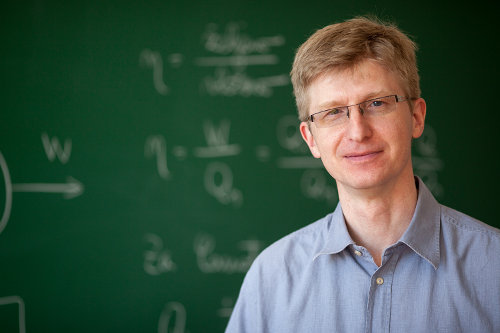“I know that Ukrainian language struggles under the pressure of Russian language and I wanted to make this my little contribution to Ukrainian cause”
This text in Ukrainian is here
Ukrainian media are now discussing a conflict between the owner of a large Ukrainian publisher, Nash Format, and managers of the company. The managers retire loudly as a result of what looks like a traditional conflict between hired personnel and a shareholder. However the ex-chief editor of the publisher publicly mentions a decision of the shareholder to publish a Russian author as one of the reasons for their demarche.
The story actualizes the broader problem in Ukraine, a country where books of Russian authors and in Russian language have long dominated the market. For obvious reasons a Russian book has competitive advantages in Ukraine over a book published in Ukrainian: majority of Ukrainians are fluent Russian speakers, and the Russian book has been already prepared and published in Russia, while the Ukrainian edition is to be separately prepared in order to be offered to a Ukrainian reader, including preparing Ukrainian translation, buying a license from the copyright owner and carrying out various other expenses – all this in order to be offered to a market much smaller than the market for a Russian-language book.
 This is the context of our talk with Dr. Marko Pinteric, the story having a traditional aspect and a non-traditional aspect, though with a (so far) traditional outcome.
This is the context of our talk with Dr. Marko Pinteric, the story having a traditional aspect and a non-traditional aspect, though with a (so far) traditional outcome.
Dr. Pinteric is a professor of physics in a university of a European medieval city, Maribor in Slovenia. He is teaching physics to future architects and civil engineers, and he has written a book on his subject. This was quite traditional for a European professor, and now we will talk about non-traditional i.e. Marko’s interest in Ukraine in general and Ukrainian publishing in particular.
Maidan-Inform (M-I): Marko, is it typical for a Slovenian intellectual to be interested in Ukraine? How has it happened that you have developed your interest in Ukraine?
Well, for me it was very natural. I was born in communist Yugoslavia, and witnessed the fall of communism and the break-up of the country around 1990. My experience was further enhanced by the fact that I was studying in Zagreb, Croatia, while Croata was brutally attacked by Serbian-led Yugoslav Army. This is why I became very interested in the history and politics of Eastern Europe.
I have recognised numerous similarities between Croatia and Ukraine even before the tragic events of 2013-2014. However, when I saw the brutal Russian aggression, I thought that maybe Croatian experience could be helpful for the Ukrainian cause. I was searching for Ukrainian contacts and I came across Maidan Monitoring Information Center. For whom I later wrote a series of articles.
- Lessons of Croatia for Ukraine: Nikola Šubić Zrinski song
- Lessons of Croatia for Ukraine. Yugoslav wars
- Diplomatic solution – reality or dream?
M-I: We know your book has been published by Springer, a leading international publisher of scientific books. What is your book about, how an idea came to write the book, was it easy or not to persuade the world-leading international house to publish?
The full name of my book is “Building physics – From physical principles to international standards”. I have realised that civil engineers and architects are lacking the knowledge on this subject and yet they require a different approach to learning than physicists do. So my approach to writing this book was unconventional.
From the feedback I receive, civil engineers and architects have really appreciated that. After reviewing the book Springer was happy to publish it, so in this sense it all went smoothly.
M-I: You have a very unusual condition for your publisher, and it was directly associated with Ukraine. What was it?
So after accepting to publish the book within weeks, we were on the brink of failing to close the deal. Namely, I had one – and only one – special condition: that I retain all rights on translation in Russian and Ukrainian.
M-I: Why have you had this request?
I wanted to prevent translation into Russian and yet allow translation in Ukrainian giving up my royalties. I thought that having a good book translated only in Ukrainian and for a favourable price would increase prestige of the Ukrainian language. I know that Ukrainian language struggles under the pressure of Russian language and I wanted to make this my little contribution to Ukrainian cause.
M-I: From your Slovenian/Croatian perspective, what are your thoughts regarding the linguistic situation in Ukraine?
Well, I think Slovenian situation would be instructive. There are only two millions of Slovenians, whereas most older people speak Croatian/Serbian fluently and most younger people speak English fluently. Still it would be inconceivable for an average Slovenian that Slovenian is not predominantly used in public.
This fact is used by Russian apologists in Slovenia to promote Russian narrative: “Majority of people in Ukraine speak Russian, so they are Russian. Ukrainian fascist government promotes Ukrainian language, which means they deny the majority speaking their national language”. It is very hard for Ukrainian supporters in Slovenia to argue that speaking Russian in Ukraine does not automatically mean that people are Russians and support Russia.
M-I: Back to the book: Was it easy to negotiate this – apparently not very usual – condition?
If I remember right, it took almost two months to come to an agreement with Springer. I was assisted by a lawyer provided for the project by Maidan Monitoring Information Center, legally it was our idea that I should retain the rights to Russian and Ukrainian translations rather than passing the rights, together with all other translation rights, to the publisher.
As it looked to me, people at Springer couldn’t understand this condition and struggled how to put it in the contract. When I almost gave up any hope of publishing with Springer (M.-I.- Marko was prepared to cancel the preliminary agreement with them if this special condition was not met), they finally proposed that I retain rights on all translations, and this allowed us to finalize the matter and eventually publish the book.
M-I: Russians like to put “russophobia” labels on stories like this. How could you comment on this? How would you name this your approach if you do not like the term?
Russophobia? (laughs) Well, if having the opinion that Russian policy should not meddle into politics of other independent countries, like language policy in Ukraine, is Russophobic, then maybe I am a Russophobe. But what I am doing is only done in sympathy of Ukraine, and I disagree that being sympathetic to Ukraine and its causes should be automatically labelled Russophobic, as many Russians do.
M-I: But it is discriminatory, isn’t it?
Well,… I guess in some sense it is, but then it is a positive discrimination… The concept when you give the weaker party an advantage, because otherwise it has no chance against the stronger party… who, by the way, has gained their strength as a result of really brutal discrimination.
And, why wouldn’t, for a change, Russians be forced to use an Ukrainian language book?
M-I: Then the story again returns to the traditional course of events. Maidan Monitoring Information Center have been looking for a Ukrainian publisher on Marko’s behalf, and in spite of all our efforts, in spite of gifting copyright at no costs to the Ukrainian publisher, and the guaranteed lack of competition from a Russian version which should never be born, finding a Ukrainian publisher has appeared impossible.
One could always speculate that the book probably was not worth publishing efforts even under the generous conditions offered. Has the book caused any interest in publishing any other translations so far?
I was recently approached by persons connected to a prestigious Chinese University and they asked me if I would be prepared to grant a license for publishing in Mandarin. Their opinion of the book was very complimentary, they believed it could be very helpful for Chinese students and engineers. And of course they offered to pay royalties typical for Chinese market.
M-I: Therefore Chinese scientists have located you themselves in order to pay you for publishing your book in their language, whilst here in Ukraine locating those interested in publishing the book at no costs for copyright and with the guaranteed no-competition from the Russian version has appeared impossible. A so usual outcome to such an unusual story..?
I still hope that some publisher will show interest. I think that some of the issues in the book – such as, how to decrease energy consumption in buildings – are very important for Ukraine who is dependent on Russian fossil fuels. The increased knowledge could help the fight in this direction. And perhaps – just perhaps – something like this could become a model case. Maybe other Ukraine-friendly international authors could follow the suit.




